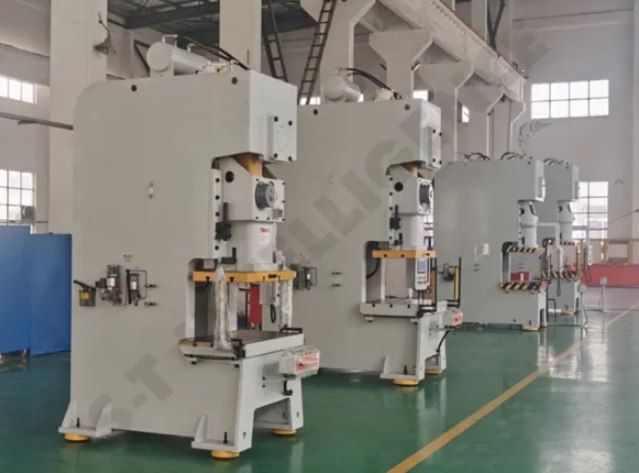How to Choose a Servo Press for Your Production?
In the world of manufacturing, the decision on which servo press to utilize is pivotal in achieving not just efficiency and productivity but also high product quality. According to recent insights, manufacturers are increasingly favoring servo presses due to their ability to provide precise control and superior performance compared to traditional mechanical presses. However, the selection process is not straightforward; it involves a careful examination of various critical factors.
Understand Your Production Requirements:
Assessing your production needs is the first step before choosing a servo press. Key considerations include:
- Material Type and Thickness:
Identify the types of materials and their thicknesses that you plan to work with. Different servo presses are designed for specific material types, meaning some could be better suited to your applications than others.
- Production Volume:
Your production volume will dictate the speed and throughput required. If you're engaging in high-volume production, you might need a press that offers faster cycle times and a greater capacity to efficiently meet demand.
- Application Specifics:
Clarifying the specific tasks that the servo press will perform—be it stamping, forming, punching, or assembly—can help pinpoint the right model for your operations. Some presses may excel in certain applications, so it's vital to understand your needs.
Evaluate Performance Characteristics:
When choosing a servo press, it's crucial to evaluate its performance characteristics as they significantly affect its capacity to fulfill your production needs. Consider these factors:
- Force and Speed:
Be sure to check the maximum force and speed capabilities of the servo press. These metrics should align with the demands of your application, particularly for high-stress tasks or when working with tough materials.
- Accuracy and Precision:
It's essential to choose a servo press that delivers precision in stroke, positioning, and force control, ensuring consistent and high-quality results, especially for applications that require strict tolerances.
- Flexibility:
Assess how programmable the press is, as well as its tooling compatibility. A versatile machine should easily adapt to varied production scenarios and evolving requirements, making it a valuable asset in the long run.
Consider Control and Automation Features:
The level of control and automation in a servo press greatly influences production efficiency and consistency. Look for features like:
- Programmable Operation:
Select a servo press that allows for programmable operation, ensuring meticulous control over aspects like speed, force, and dwell time.
- Data Monitoring and Analysis:
Opt for a servo press equipped with capabilities for in-depth data monitoring and analysis, which can help track production variables, identify irregularities, and enhance operational performance.
Assess Safety Features:
Safety considerations are paramount in manufacturing, necessitating a servo press with reliable safety features. Look for important mechanisms such as:
- Emergency Stop Functionality:
Ensure that your servo press is fitted with emergency stop buttons and safety interlocks, enabling immediate cessation of operations in emergencies.
- Light Curtains and Guards:
Confirm that the press includes light curtains, safety barriers, and guards to shield operators from dangerous areas during operation.
- Safety Certification:
Make sure the servo press meets OSHA safety standards to guarantee a safe working environment.
Factor in Maintenance and Support:
The longevity and dependable performance of your servo press hinge on ongoing maintenance and support. Important considerations include:
- Maintenance Requirements:
Evaluate the maintenance needs of the servo press, including requirements for lubrication, parts replacement, and troubleshooting procedures.
- Availability of Spare Parts:
Ensure that spare parts and components can be readily obtained to minimize downtime during repairs or replacements.
- Technical Support and Training:
Select a supplier who provides excellent technical support, thorough training programs, and clear documentation to assist with installation, operation, and maintenance.
Consider Total Cost of Ownership (TCO):
While upfront costs matter, evaluating the total cost of ownership (TCO) over the lifespan of the servo press is critical. Important factors include:
- Initial Investment:
Analyze the initial purchase price, incorporating any additional expenses for accessories, tooling, and installation.
- Operating Costs:
Account for ongoing expenditures like energy consumption, regular maintenance, and costs associated with spare parts over time.
- ROI and Productivity Gains:
Consider the potential return on investment (ROI) by estimating productivity improvements, enhanced product quality, and decreased scrap rates that the servo press may facilitate.
Seek Recommendations and References:
Finally, gather insights and references from industry colleagues, manufacturers, and suppliers who have experience using servo presses. Their perspectives can provide invaluable guidance in your selection process.
Conclusion
Choosing the right servo press solutions for your production setup necessitates a thorough assessment of performance characteristics, control features, safety standards, maintenance needs, and total cost of ownership. By understanding your production requirements and evaluating various servo presses' capabilities while seeking expert input, you can significantly enhance efficiency, productivity, and product quality within your manufacturing operation.
None


Comments